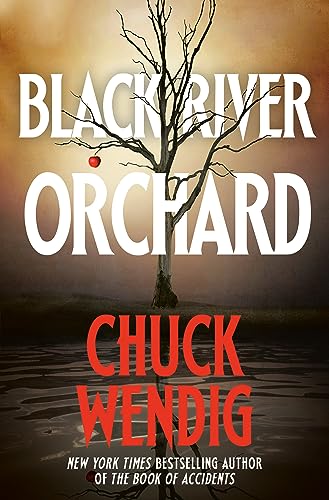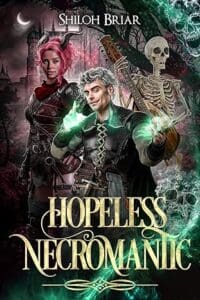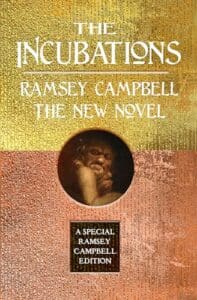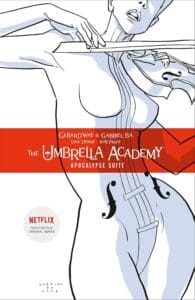
Synopsis
A small town is transformed by dark magic when a strange tree begins bearing magical apples in this new masterpiece of horror from the bestselling author of Wanderers and The Book of Accidents.
It’s autumn in the town of Harrow, but something else is changing in the town besides the season.
Because in that town there is an orchard, and in that orchard, seven most unusual trees. And from those trees grows a new sort of apple: Strange, beautiful, with skin so red it’s nearly black.
Take a bite of one of these apples and you will desire only to devour another. And another. You will become stronger. More vital. More yourself, you will believe. But then your appetite for the apples and their peculiar gifts will keep growing—and become darker.
This is what happens when the townsfolk discover the secret of the orchard. Soon it seems that everyone is consumed by an obsession with the magic of the apples… and what’s the harm, if it is making them all happier, more confident, more powerful?
And even if buried in the orchard is something else besides the seeds of this extraordinary tree: a bloody history whose roots reach back the very origins of the town.
But now the leaves are falling. The days grow darker. And a stranger has come to town, a stranger who knows Harrow’s secrets. Because it’s harvest time, and the town will soon reap what it has sown.
Review
To start, big thanks to the folks over at NetGalley and Del Rey for getting a copy of this novel over to me.
Chuck Wendig’s Black River Orchard is a haunting, sprawling small-town saga following numerous personalities in Harrow, Pennsylvania. When I say sprawling, I mean this book is five hundred-plus pages covering months and years in time. Our cast of characters includes local orchard farmer Dan, his typical sassy teen daughter Calla, her track-star boyfriend Marco, married newcomers to the town Meg and Emily, now-returned local Joanie and her husband Graham, and apple hunter John Compass. And those are just the key players. Somehow, Wendig manages to wrap all these people and the subsequent, terrifying events they encounter into one neatly packaged tale filled with action, loss, sacrifice, courage, terror, and apples.
That’s right, Chuck Wendig has made the fruit aisle of my grocery store the last place I want to be. Born out of financial desperation, apple farmer Dan not only wants but needs to find a type of apple that will sell and sell by the crate. He’s trying to ensure that his daughter Calla can attend any college she wishes without the soul-crushing burden of student loans. Seemingly right on time, he discovers a “new” type of apple, one that tastes of paradise and promises the sweetness of an eternal tomorrow. Sounds too good to be true, right? You would be correct.
The townspeople of Harrow latch onto this apple with an animalistic desire; not only are they seemingly glowing after consuming the fruit, but they are “better” versions of themselves. Or at least they think they are. Of course, a handful of people simply don’t like apples or decide not to indulge in this fruity pleasure. Boy, are they better off for it. Wendig crafts this cult-like atmosphere with the natural progression of alienation of those who do not eat the apple. This seems deeply rooted in organized religious dogmas that are founded on the principle that those who believe and partake in these practices will be saved while those who do not will perish. The haves, and the have-nots.
Present events escalating, Wendig also includes numerous interludes that give readers a glimpse as to how the hell the town of Harrow ended up here. Normally, I hate to be pulled away from the action of a main plotline, but these asides are concise and meaningful. They’re spaced so well that it feels completely natural to be privy to this information given the circumstances of the present day.
Some would argue that the numerous jumps between characters and the focus on more of their perhaps “mundane” experiences at the beginning of the novel would be a drag or lull the pace of the story. However, I would argue that this is one of the book’s strongest features. Through these brief glimpses of life with each character, we learn what things were like before the apple and after the apple (B.A. and A.A. if you will). I’ve written before about how strongly I care for character development, and if you find yourself aligning with those values, you’ll love this book for the sheer amount of time you get to spend learning the intricacies of each character introduced.
Perhaps the strongest quality of this book is the sheer horror of it all. Small samples of disturbing imagery are injected into the plot from the start with the second half of the book spiraling into the full-fledged monstrosity of catastrophe. How Chuck Wendig was able to turn a seemingly inconspicuous member of the fruit family into something so terribly horrific is truly beyond me. Several scenes left me wincing and were filled with gory body horror that I refuse to spoil for anyone (you simply need to experience that for yourself). Most horrifying of all is watching the townsfolk lose themselves to the apple and the idea that their “dignity” can be restored through the transformation the apple offers. This is a central idea that Wendig capitalizes on: the idea of how deep the roots of our identity, or rather who we think we are in relation to who we want to be, reach. Do we measure up to who we think we are? How far will you go to achieve “perfection?”
Nothing short of a horrific saga, Black River Orchard is a story that embraces its terrifying weirdness with open arms. With a comprehensive backstory interwoven with the present narrative, Chuck Wendig has gifted us a gritty look into small-town persuasion and the horrors of falling to the masses. We are given many loveable (and hate-able) characters to empathize with and shake our fists at throughout the course of the plot without losing out on the action. A true example of balancing characterization and plot development, Black River Orchard will have me skipping the farmer’s market for the foreseeable future.









Leave a Reply